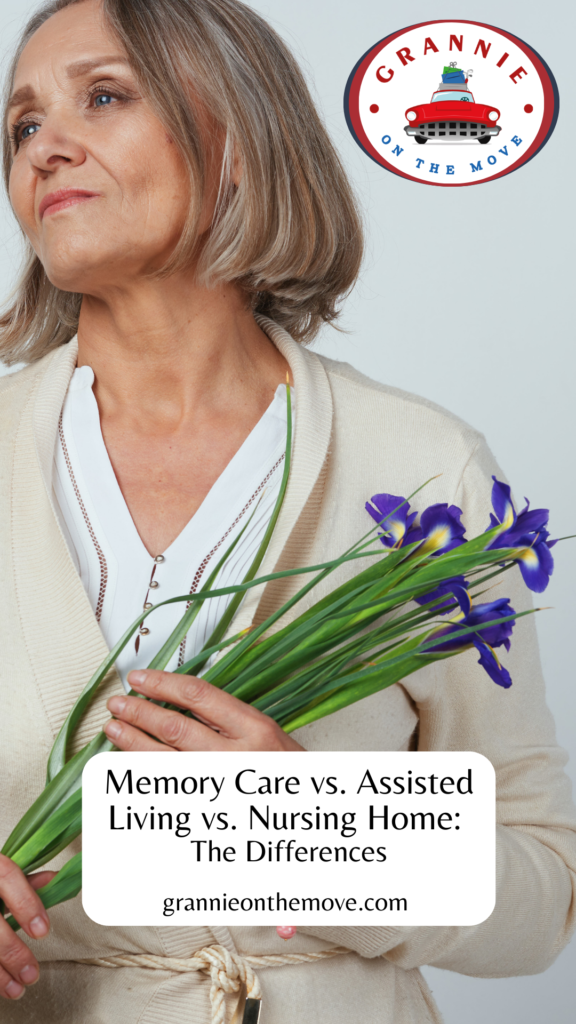As our loved ones age, it’s essential to consider their living situation and the level of care they require. Choosing between memory care, assisted living, or a nursing home can be overwhelming, especially if you’re not familiar with the differences between these options.
All three provide supportive living arrangements for seniors, but there are vital distinctions that can impact the quality of life and care our seniors receive. In this article, we’ll take a closer look at the significant differences between memory care, assisted living, and nursing homes. By understanding these differences, you’ll be equipped to make the best decision for your loved one’s well-being and quality of life.
What Is Memory Care?
Memory care is a specialized type of senior living that caters to individuals with memory impairments such as Alzheimer’s disease, dementia, and other related cognitive disorders. Memory care communities provide specialized care and services that address the unique needs of seniors with memory impairments to ensure they receive high-quality, personalized care in a safe and secure environment.
Memory care facilities provide 24-hour supervision and care, ensuring that seniors with memory impairments receive the care they need, regardless of the time of day or night. These facilities focus on providing individualized care and attention, with staff members trained to understand the individual’s unique needs, preferences, and abilities to provide the best possible care.
Features of a memory care community
One key feature of memory care facilities is the design of the physical environment. Memory care facilities are designed with safety and security in mind, with features that help seniors with memory impairments navigate the facility. For instance, the doors are locked and monitored to ensure that residents do not wander off and are always safe.
Staff members at memory care facilities are trained to provide specialized care to residents with memory impairments. This training covers a wide range of areas, including understanding the various stages of Alzheimer’s and dementia, communicating with residents with memory impairments, and managing challenging behaviors that often come with these conditions.
Memory care facilities also provide specialized activities and programming that cater to residents with memory impairments. For instance, some facilities offer music, art, and reminiscence therapy to improve residents’ cognitive functioning and promote their overall well-being. Other activities may include exercise classes, memory games, and social events that help residents socialize with each other.
Unlike assisted living, memory care facilities offer a higher level of care for seniors with memory impairments. The services provided at these facilities are tailored to meet the specific needs of individuals with memory issues, ensuring they receive the specialized care and attention they need.
What Is Assisted Living?
Assisted living facilities, also known as assisted living communities, are designed for seniors who require assistance with daily activities but still want to maintain independence. While nursing homes provide round-the-clock medical care for seniors with severe health conditions, and memory care facilities cater specifically to those with dementia or Alzheimer’s disease, assisted living communities offer residents support with day-to-day tasks.
Assisted living facilities generally provide seniors access to various services, including housekeeping, laundry services, and medication management. They also typically offer assistance with activities of daily living (ADLs), such as bathing, dressing, eating, and grooming. Additionally, many assisted living communities provide transportation services for residents to attend medical appointments and run errands.
More features of assisted living
Assisted living facilities offer an alternative to nursing homes for seniors who require some assistance but do not have a significant medical condition. Instead of receiving around-the-clock medical attention, assisted living residents are given a more personalized support plan tailored to their unique needs. These communities offer a range of living arrangements, from single apartments to communal living spaces, allowing seniors to come and go as they please.
An assisted living facility has pros and cons, as do other senior care options. For instance, seniors in assisted living can enjoy the independence of living in their own apartments while also taking advantage of the extensive amenities and social opportunities. At the same time, however, assisted living facilities do not offer the same level of medical care as nursing homes, which can be a concern for seniors who require more intensive medical attention.
Despite some limitations, assisted living has become an increasingly popular senior care option in recent years. With a growing number of seniors seeking alternative living arrangements to maintain their independence while receiving necessary support, the demand for assisted living facilities continues to increase.
That being said, it is important for seniors and their families to carefully evaluate their options and choose a facility that best fits their individual needs. This can include looking at factors such as location, amenities, staffing, and cost when deciding which assisted living community to choose.
What Is A Nursing Home?
A nursing home is a long-term residential facility that caters to individuals who require around-the-clock medical attention and care. It houses older adults with chronic physical and mental disabilities, those recovering from an injury, or those with advanced dementia or Alzheimer’s disease that impede their ability to perform daily living activities.
Nursing homes offer a comprehensive care environment with 24/7 medical supervision that includes assistance with personal hygiene, meals, licensed nursing care, physical therapy, and other healthcare services. Some nursing homes also provide specialized services such as respiratory, occupational, and speech therapy.
The primary goal of a nursing home is to provide skilled nursing care in a safe, comfortable, and supportive environment. Nursing home staff members must have professional medical backgrounds and training, which is essential in ensuring residents receive appropriate care.
Unlike assisted living and memory care facilities, nursing homes are regulated by federal and state laws that set minimum staffing levels and dictate the types of services that should be provided. These laws also ensure that nursing homes are regularly inspected and monitored to ensure safety and quality care is provided to all residents.
Features of a nursing home
Nursing homes also provide a wide range of social activities and support services to promote physical and mental health and social interactions among residents. Social activities include games, music, crafts, cultural events, and other recreational programs that enhance the quality of life for the residents.
One of the crucial elements of nursing home care is providing individualized care plans tailored to each resident’s unique needs. Care plans typically involve medication management, wound care, rehabilitation, fall prevention, and other services that ensure residents’ health and safety. These care plans are reviewed regularly and updated as needed to ensure that residents receive optimal care.
Costs associated with nursing home care largely depend on the level of care required and location. In most cases, nursing homes are more expensive than assisted living and memory care facilities due to the high level of care and medical attention needed.
What Are The Key Differences?
Memory care, assisted living, and nursing homes are distinct types of care, designed to meet the specific needs of seniors.
Memory care facilities cater to seniors with memory problems, offering specialized staff, activities, and programs to address cognitive and emotional needs. Assisted living facilities offer independence while providing assistance with ADLs and community activities. Nursing homes offer comprehensive medical care, 24/7 medical services, and personalized attention to residents with complex medical conditions.
When discussing long-term care options, it’s important to consider the individual needs of your loved one and the services provided by each type of care.
Care Placement Services
Grannie On The Move provides personalized and comprehensive care placement services for seniors. We understand that every senior has unique care needs and preferences and aim to assist seniors in finding the right level of care that meets their needs and preferences.
To ensure that seniors receive the best possible care, Grannie On The Move conducts a comprehensive assessment to determine the appropriate level of care. The level of care is based on a variety of factors, such as the senior’s physical and medical needs, financial considerations, and geographical preferences. This assessment is performed by a team of experienced professionals who are trained to understand the various levels of care and their associated benefits.
Once the level of care is determined, Grannie On The Move will begin searching for the right senior living facility that can accommodate the identified needs. The agency has a large senior living community database that caters to different levels of care, from memory care services to assisted living to nursing homes. This database is continuously updated to ensure that it is current and accurate, thus enabling Grannie On The Move to provide seniors with access to the best available care facilities.
In conclusion, Grannie On The Move is an experienced senior care placement agency focusing on matching seniors with the right level of care and senior living community. Want to learn more? Contact us today for a free consultation.


